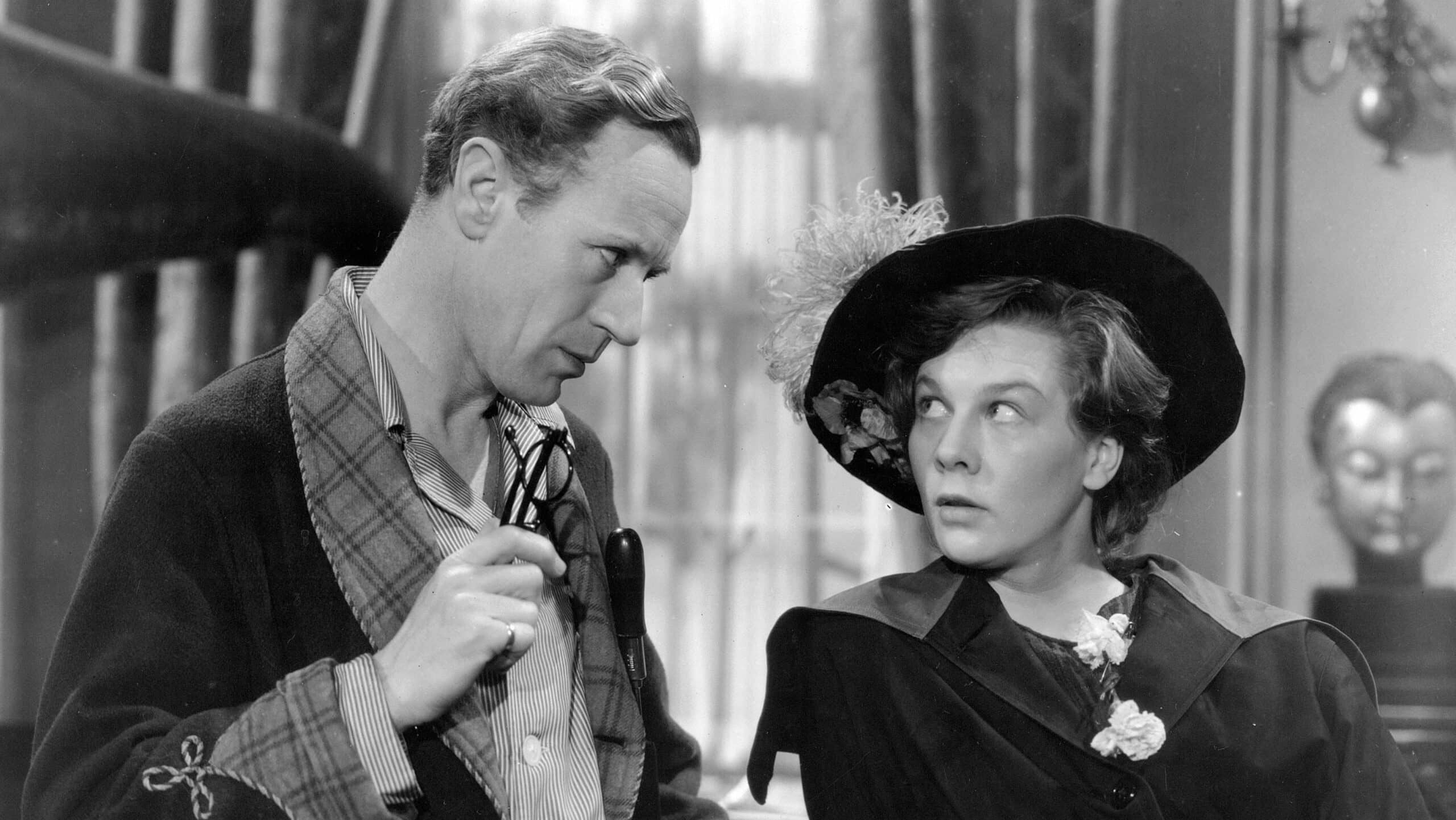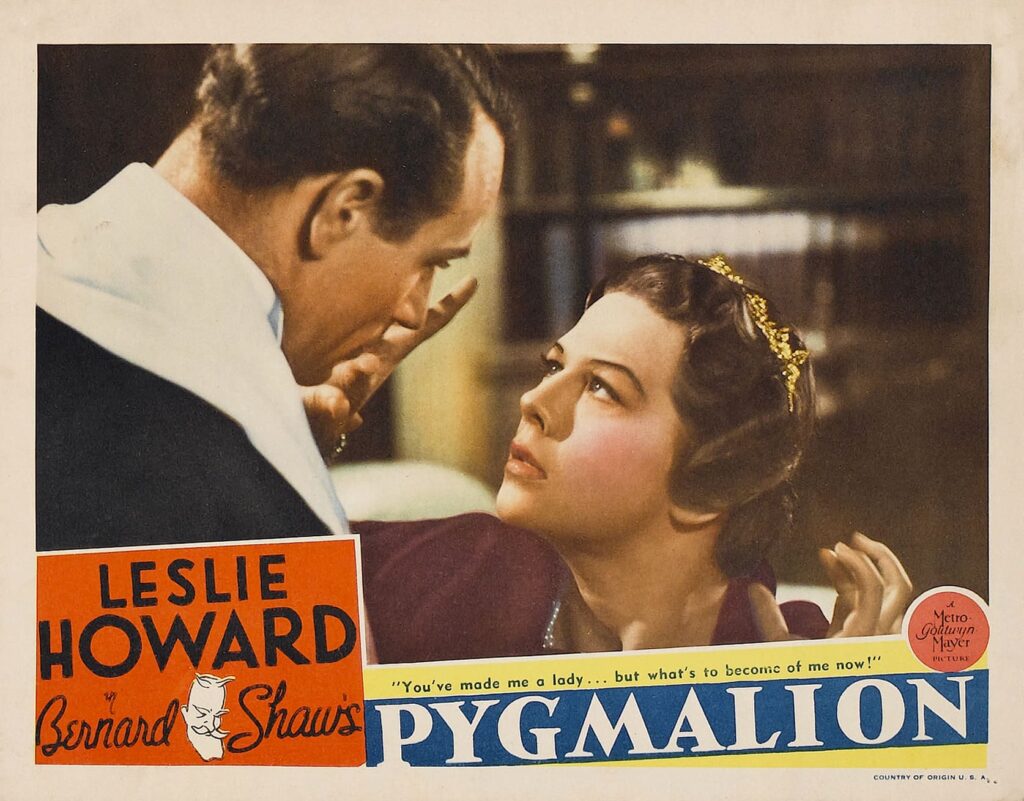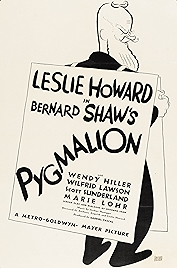Pygmalion was the name of a mythological sculptor who made a statue so beautiful that he begged the gods to bring it to life. Which they did. He called it Galatea.
The myth has been worked and reworked over the millennia and still has purchase – Trading Places is a version of the basic idea, so is Damien Chazelle’s breakthrough film Whiplash. In all the best updates there’s a conversation going on in the subtext about appropriate behaviour. When does tough love become abuse? When should the sculptor accept that “his” creation now has a life of its own?
It’s all here in this film version from 1938, an adaptation of George Bernard Shaw’s 1913 play about a phonetics professor called Henry Higgins teaching a Cockney flower seller called Eliza Doolittle how to pass for a lady – for a bet. The name Henry Higgins, of course, is a Shaw joke… and a test. He’s “Enry Iggins” until she makes the grade.
These days Pygmalion has to fight for space against My Fair Lady. The 1964 movie was based on a stage musical from 1956 but, watching Pygmalion again, what’s remarkable is how closely My Fair Lady sticks to this old film version. No one sings but if they did burst into a chorus of The Rain in Spain or Get Me to the Church on Time it would slot right in.
In My Fair Lady, Rex Harrison’s take on Higgins tones the persnickety professor down a bit but he’s essentially the same grouchy snob, the ultimate mansplainer, as played by Leslie Howard here. As Eliza Doolittle, Wendy Hiller isn’t quite as elegant as Audrey Hepburn (but then who is?) and her transformation doesn’t have Cecil Beaton’s production design behind it but she’s a more credible Cockney than Hepburn to start with and just as convincing a lady when she finally gets there.
Shaw’s Howard’s Higgins is breathtakingly acerbic and really rather unpleasant but Howard tries to knock an edge off by playing him as a professor so isolated in his ivory tower that he’s lost touch with his empathetic side. The arcs are obvious – he teaches her to speak properly; she’s teaches him a thing or two about human relations, particularly in one gigantic explosive outburst late on, when Eliza finally tells the professor what she thinks of him. And he, in a moment of sudden clarity… see Pretty Woman (another version of the Pygmalion myth) for an idea of what happens.
Shaw chose Hiller himself, and rewrote the play to suit the screen. Even so, the world he depicted in 1913 wasn’t the world of the more egalitarian 1930s and there’s a bit of sleight of hand going on as to when this is set. It might be contemporaray London or the one of a few decades ago. By the time of My Fair Lady no such smudging would work – it’s set definitively in the past.
It’s an A team British drama all round though. It’s directed by the great Anthony Asquith (assisted by Leslie Howard). Asquith is a dab hand at adaptations from the theatre, and knows when to leave something alone and when to zhuzz it up a bit – see his The Importance of Being Earnest. Howard was the country’s biggest male star, Hiller was an unknown but stamps her imprint on the role and is convincing even when her accent isn’t. Wilfrid Lawson plays her grasping but philosophical father with a roguish gleam in his eye, David Tree is perfect as the silly posh chap who falls for the refined Eliza., and Jean Cadell is punchy as the professor’s housekeeper, a woman with a foot in either camp and so a valuable go-between, especially early on (Cadell is the grandmother of the actors Simon and Jean Cadell, and you can see her in them).
In the background is David Lean, working as Asquith’s editor in his first important job. Asquith gave Lean the central montage sequence to direct – of the professor painstakingly making “a duchess of this draggle-taled guttersnipe” – which shows Asquith’s confidence in Lean’s abilities.
But really it’s at the feet of Shaw that most of the plaudits should be laid. It’s a great, zingy script, with lots of high-flown language for the professor – “I waste the treasures of my Miltonic mind by spreading them before you,” he says at one point, being the dick he is. Hiller gets the best of it though, particularly in the film’s best and funniest scene at a tea party where Eliza has been taught how to speak but not what to say. Starting off on safe ground – “in Hampshire, Hereford and Hertford, hurricanes hardly ever happen” – she’s soon way out of her depth. It’s like watching a child ice-skating – brilliant writing by Shaw; brilliant playing by Hiller.
Shaw was an Irishman and his play examines and gently satirises the codes of the British class system. In doing so he poses himself a question as the film progresses. If there really is no barrier to entry and learning to speak “properly” is enough to get you in, doesn’t that invalidate his objections? If you want admission, pay the entry fee! Putting the words in Eliza’s mouth, Shaw has a very neat answer to that. You don’t win an Oscar and a Nobel prize for being stupid.
Pygmalion – Watch it/buy it at Amazon
I am an Amazon affiliate


